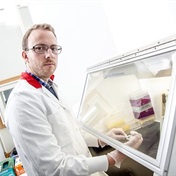This article has not necessarily been edited by Health24.
SUNDAY, June 27 (HealthDay News) -- Scientists have located 12 new genes that seem to be linked with a predisposition for type 2 diabetes, bringing the total number of genetic locations implicated in the condition to 38.
At this point, the findings don't mean much for patients or doctors, although one day they may lead to better treatments.
"From here, to apply this clinically is going to be many more years," said Dr. Joel Zonszein, director of the Clinical Diabetes Center at Montefiore Medical Center in New York City.
"It is tough to pull clinical relevance out of [these types of studies], but this is laying the groundwork for what can come later," added Jacob L. McCauley, an assistant professor at the John P. Hussman Institute for Human Genomics at the University of Miami's Miller School of Medicine. "The size of this study is what's impressive. This provides a lot of power that in time these results will have medical relevance."
Also, Zonszein pointed out, these genes only relate to a predisposition for developing diabetes, not actually having or getting diabetes.
"Environmental factors are the other 50 percent of the story," he said.
And those environmental factors are well known. The most important is being overweight or obese.
According to the study authors, who publish their report in the June 27 online edition of Nature Genetics, the genes related to type 2 diabetes that are already known represent less than 10 percent of the total genetic picture of this disease.
"The majority of people with type 2 diabetes don't have a monogenetic [traceable to one gene] disease. These are only 4 to 5 percent," Zonszein said. "Most have a very complex polygenic disease."
And each of the genomic regions identified in this study lend only a small increase to the risk of diabetes.
These researchers, from Europe and North America, revisited data from previously conducted genome-wide association studies involving more than 8,000 individuals with type 2 diabetes and almost 40,000 healthy controls. All participants were of European descent.
They then added genetic data from another 34,000 people with diabetes and close to 60,000 controls.
The genes they found were associated with well-known biological processes of diabetes, namely beta-cell function (these are the pancreatic cells that produce insulin) and insulin performance, as well as cell-cycle regulation.
An unexpected finding was that one of the genes resides on the X chromosome. "That's important because it may indicate maternal inheritance," Zonszein explained.
"X chromosome association has been rare in most complex diseases, and this is the first one identified for type 2 diabetes," McCauley explained.
Also interesting is the fact that seven of the regions are known to be involved in other diseases or human characteristics including height, certain cardiovascular risk factors, and skin and prostate cancer.
"There are independent associated signals in what we would consider to be unrelated diseases or unrelated phenotypes," McCauley stated. "This further points out that biology is complex. Genes do a lot of things. They're involved with a lot of networks."
More information
The American Diabetes Association has more on type 2 diabetes.




 Publications
Publications
 Partners
Partners














